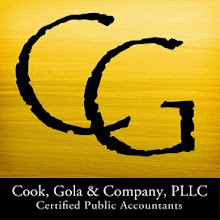If a business venture does not show a profit in three out of five years, the IRS could take the position that the activity is not being conducted on a “for-profit” basis. Why would they do this? Because while losses incurred by businesses are deductible, losses incurred in the pursuit of a hobby are not.
If a business' records show that it has incurred losses for several consecutive years, it could potentially be at risk of the IRS challenging its profit motive so they can disallow these losses. If the IRS reclassifies a business as a hobby, any losses will be limited to the gross income for that activity for each year. Any excess expenses will be treated as personal items and disallowed, leaving the owner owing taxes plus interest and penalties on any amounts disallowed.
Obviously, an owner would want their business to be able to deduct all of its expenses each year. However, if that business is not profitable for three of five years and the IRS challenges its losses as hobby losses, the taxpayer would have to prove under the “facts and circumstances” test that they are at least attempting to build a profitable business. The facts and circumstances test looks at several factors. Some of these are:
--the manner in which the activity is conducted
--the expertise of taxpayer in the area
--the amount of time and effort spent carrying out the activity
--expectation of future growth
--the success of the taxpayer in other activities
--historical profits or losses of the activity
--the overall financial status of the taxpayer (does he depend on this income?)
--any elements of personal pleasure derived from the activity
The IRS makes its decision on a case-by-case basis, and there are no set rules for determining whether an activity is carried on for-profit or is a hobby. Some things an owner can do to support their position of carrying on a “for-profit” business are:
--keep thorough, business-like books and records
--use a separate checking account and credit cards for the business
--keep a log of personal use of business assets
--carry applicable professional insurance for your business
--advertise the business in trade journals or local sources
Hopefully, all of your ventures are profitable. In the event that they are not, following these guidelines will ensure that you are able to properly deduct all of your business losses.
--Dan Musick is the Tax Services partner for Cook & Associates, a full-service public accounting firm with offices in San Marcos and San Antonio, TX



No comments:
Post a Comment